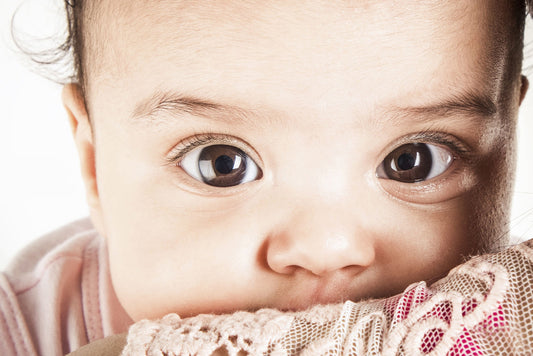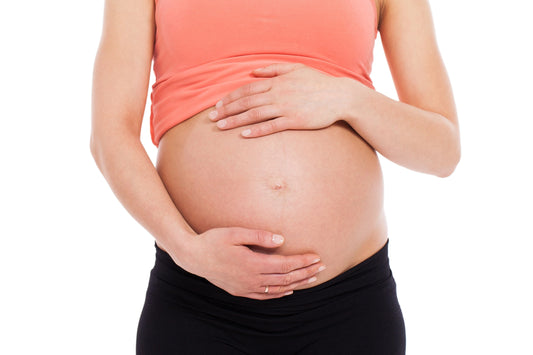When pregnant, it seems everyone we meet, from family to strangers in the supermarket, has something to say about being a mum and on how to care for your newborn baby.
But no one mentions what is probably the most significant thing: how becoming a mum, not only turns your whole life upside down in an instant, but also challenges your very existence.
The arrival of a new baby brings pure joy, a sense of amazement and fulfilment, as well as so much more. You will experience moments, days, weeks, months even, feeling as if you have no idea who you are anymore.
Nothing seems familiar, everything changes, from your body to your daily routine, your priorities, your career goals, your relationships. You’ll feel confused, lost, and afraid.
The identity crisis
Before you became a mum, it was just you. As soon as your baby was born – you were reborn as a mum. Your whole life was turned upside down in an instant and this can often trigger an identity crisis.
Over the course of our lives, we experience several identity crises: for example, during those teenage years and when we reach midlife. However, the biological changes which occur during pregnancy and post childbirth make the transition to motherhood phase so distinct from others.
A 2016 study revealed that during pregnancy, and for at least two years after giving birth, a mother's brain undergoes significant remodelling. This impacts areas associated with social cognition and empathy.
Although researchers aren’t able to provide any conclusive findings as yet, their theory is that our brains are adapting to motherhood and to responding better to the needs of our young infants.
The physical, psychological, and emotional changes in new mums
A new mum goes through various changes following the birth of her child. Hormones go wild, her body undergoes further transformation to the changes which already took place during pregnancy. It also affects how a woman deals with emotional relationships.
These experiences are virtually universal, which is why anthropologist Dana Raphael has invented the term matrescence. This word encompasses and describes all the physical, psychological, and emotional changes which happen when you become a mum.
Similar to the adolescence stage, matrescence is also strongly linked to our unique personal identity. A teenager’s identity is shaped by how different they can be from their parents. Whereas an adult’s identity is strongly linked to their occupation and role.
However, when we have a baby, our work, our priorities, our career goals, all take a back seat.
Our new daily routine is dictated by the needs of a small human being who depends on us for literally everything. And it all occurs pretty much overnight.
Be kind to yourself, don't believe any of the self-criticism which may pop into your head or that that you are doing everything wrong. You are battling to find a new balance as you go through such a huge transition, it won’t prove easy or immediate.
The myth surrounding being a “Perfect Mum”
"I thought motherhood was supposed to be a happy experience. However, in all honesty, it’s not as joyful as I imagined. In fact, I often feel sad, confused, and as if there is something wrong with me. Nothing I do is right". These are words which I often hear from my patients.
How many false myths about being a mum have become rooted inside of us?
A lot more than we imagine.
Our modern-day beliefs on motherhood are based on traditional myths which condition us more than we think, both consciously and, above all, subconsciously.
Our self-esteem as a mum is based on expectations and ideals portrayed in films, TV series, and advertisements.
The issue surrounds the fact that these are unrealistic ideals and are often high unattainable expectations. Only through challenging such myths will we begin to question the underlying message and redefine our interpretation of motherhood.
The perfect social media mum
Social media does not help us mums and is also responsible for creating unhealthy competition. All too often social media reflects everything we're not: super mums juggling everything perfectly, super clean houses, homemade healthy meals, successful careers, and model children.
From what we see, other mums are juggling everything so well, this leads us to believe we too should be achieving the same. But is that really the case? How much of real life is there inside a short video clip or a fabulous photo?
We often forget that we are only seeing the best snippets of their lives and we fall into the trap of believing that what other mums post on Instagram is a true reflection of their day-to-day lives.
And when we start comparing our everyday life with theirs, other mums become our benchmark, what we should be striving towards. This is how we define what a 'good mum' should be like.
Parental Burnout
This overload of information stemming from everyone around us (albeit well-intentioned!) together with social media, make us feel as if what we are doing is not enough.
Wanting to be a "good mum", means striving for perfection. And as we all know, perfection doesn’t exist and is also harmful.
Perfectionism leads to parental burnout.
Parental burnout is the combination of exhaustion, emotional distancing, and a feeling of not being a good enough parent. This derives from chronic parental stress.
The extreme exhaustion resulting from looking after an infant can lead to a sense of being emotionally detached as well as causing a parent to question their own parenting skills. Exhaustion can drive a parent to detach emotionally from their child, only addressing their physical needs (washing, dressing, feeding, school runs etc...).
Very often we think that all we need to do is take a short time out for ourselves to recharge, such as taking a nice hot bath, a walk with friends, a day at the spa or watching our favourite TV series. These can indeed all help ease anxiety and emotional stress, but is it enough?
Sometimes it is enough, other times we need to go deeper and reflect on what being a ‘good mum' actually means to us.
No to a 'perfect mum' and yes to a 'good enough' mum
Paediatrician and psychoanalyst Donald Winnicott famously came up with the phrase 'good enough mum', referring to an approach to parenting which involves being sensitive, responsive, and adaptive to our children's needs and developmental abilities. According to Winnicot's model of parenting and, in direct contrast to the notion of being a perfect parent, it is important to recognise that you can't be everything they need at all times and to be able to accept that.
It's okay to fail occasionally, we learn as we go and by doing so we help our children become healthier, more adaptive adults.
This doesn't mean that we should purposely go about teaching our 6-month-olds that the world doesn't revolve around them. Our ultimate goal is not to strive to be a "perfect" mum but a "good enough mum".
The secret to being not only a happy mum, but also a good mum, is not to try to be too perfect, take on too many things at once and to be present at all times.
On the contrary, this would just cause more stress for any mum, trigger doubts on her parenting skills, and consequently result in more anxious children. A good mum is attentive to the needs of her children but also understands the importance of not being too hard on herself.
Dr Sara Baggetta - Developmental and educational psychologist
An expert in Perinatal Psychology, she deals with well-being in mums and babies, parenting and sleep in infants. She helps new mums find a new balance by providing pre- and post-natal support.






